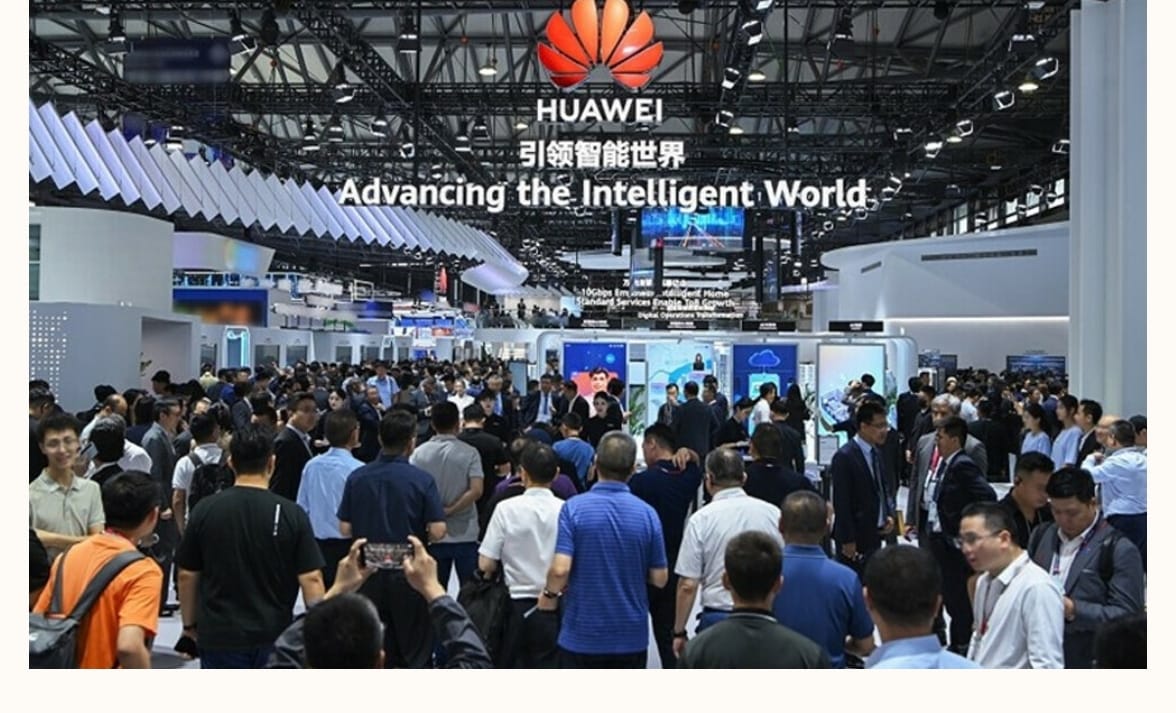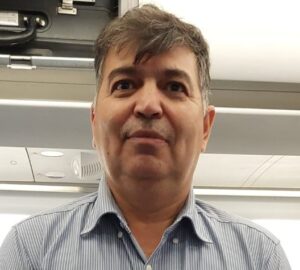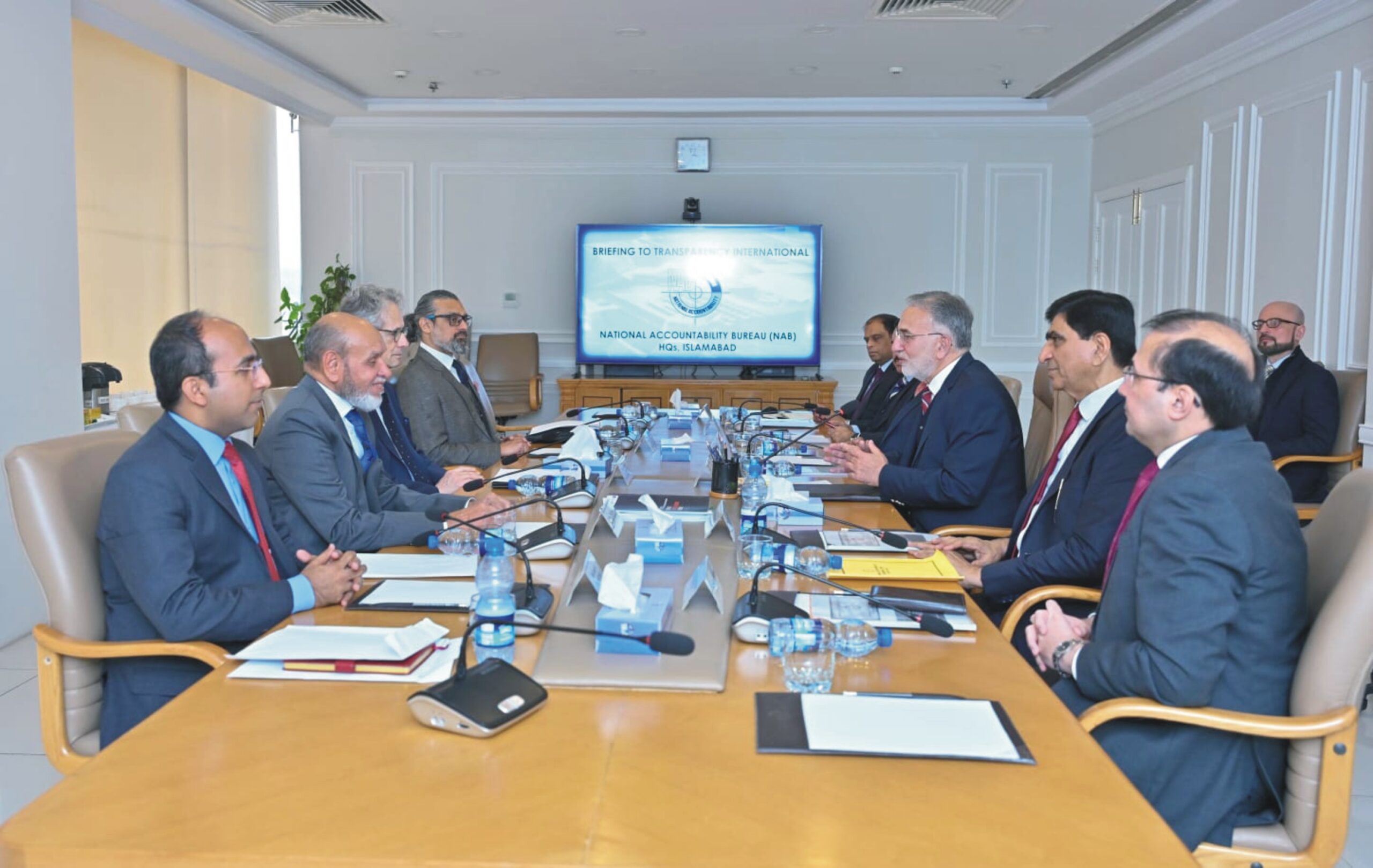
 Raziq Ali Shah
Raziq Ali Shah
ISLAMABAD, Jul 7 (APP)::In the coming decade, the transformative potential of 5G and AI technologies promises to revolutionize every facet of human existence. From smart kitchens that anticipate our culinary needs to autonomous vehicles that redefine travel safety and efficiency, the integration of advanced AI into daily life will streamline processes, enhance productivity, and elevate experiences.
In the recently concluded Mobile World Congress in Shanghai, where the transformative potential of artificial intelligence took center stage, Huawei emerged as the vanguard of the 5G AI revolution, pioneering next-level human facilitation and ushering in an intelligent future.
The event, a convergence of global leaders and tech giants, highlighted groundbreaking advancements poised to redefine connectivity and human interaction in the era of 5G and AI.
Among the prominent unveilings was Honor’s breakthrough technology designed to combat deepfake scam calls—an increasingly prevalent threat in the age of generative AI. These fraudulent calls, which manipulate audio and video to deceive victims, underscore the critical need for AI-driven solutions to safeguard authenticity. Honor’s real-time detection system, set to debut this year, employs AI to scrutinize minute details such as eye contact and lighting, swiftly alerting users to potential scams.
George Zhao, CEO of Honor, emphasized the empowering potential of on-device AI, addressing concerns over AI’s impact on authenticity and security. His remarks echoed sentiments shared by industry leaders who see AI as pivotal in shaping the future landscape.
At the forefront of these discussions was Huawei, whose executives outlined a vision where AI’s omnipresence is supported by robust telecom networks, particularly the forthcoming 5.5G. David Wang, Huawei’s Executive Director, stressed the integral role of advanced network infrastructure in realizing AI’s full potential across industries. He highlighted the evolution towards 5.5G, citing its enhanced capabilities in bandwidth and latency, which promise tailored experiences and heightened connectivity reliability.
The summit also tackled challenges posed by AI’s growing demands on processing power and heat dissipation. Sue Ryan of Frore Systems underscored the industry’s push for innovative cooling solutions like AirJet, vital for maintaining AI-driven devices’ performance in increasingly compact form factors.
Lara Dewar of GSMA noted a significant shift where AI, once a supporting technology, now steers the wheel of innovation across sectors like automotive IoT. The exhibition showcased AI-integrated vehicles and IoT advancements poised to revolutionize daily life and industry practices alike.
Huawei’s Li Peng delved deeper into the transformative impact of 5.5G, emphasizing its role in unlocking new potentials through enhanced uplink speeds and low-latency networking. He envisioned 5.5G as a catalyst for industrial applications, enabling precise AI-driven functionalities crucial for sectors like transportation and logistics.
Looking ahead, Huawei’s strategic focus on the mobile AI era was clear. Wang highlighted upcoming milestones such as the commercial deployment of 5.5G and the integration of AI into diverse devices by 2024. This convergence, Wang asserted, would usher in a new era of intelligent services, where AI assistants seamlessly integrate into daily life, from personalized content generation to enhanced user interactions.
The exhibition floor buzzed with demonstrations of Huawei’s latest innovations, showcasing their commitment to advancing 5G-A networks and AI-powered devices. Strategic partnerships with global operators underscored Huawei’s dedication to driving industry-wide collaboration and shaping the future of mobile technology.
As the summit concluded, the consensus was clear: AI’s pervasive influence will reshape industries and societal norms, ushering in an era where connectivity is not just ubiquitous but intelligent. Huawei’s leadership in advancing 5.5G and AI integration underscores its pivotal role in steering this transformative journey towards an interconnected, intelligent world.
In conclusion, the Mobile World Congress Shanghai 2024 not only highlighted technological marvels but also set the stage for collaborative efforts aimed at harnessing AI’s potential for societal benefit. As Huawei and other tech giants forge ahead, the promise of an AI-driven future beckons—a future where innovation knows no bounds, and connectivity transcends mere communication to become truly transformative.







